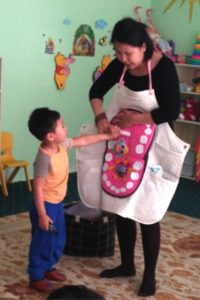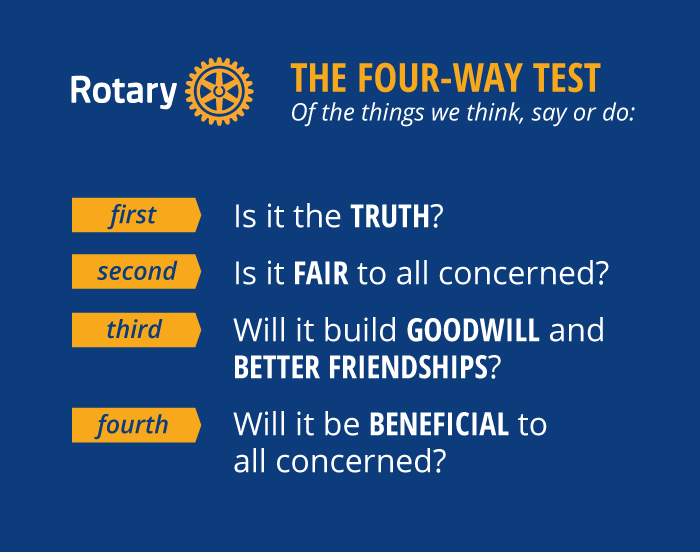Rotary International
FIRE has been honored to work closely with Rotary International and local Rotary Clubs since 2004. Our collaboration with Rotary has been invaluable and helped shape our programs. FIRE aligns with Rotary’s values of “Service above Self” and “People of action” of the Four-Way Test. We continue to visit and work with Rotary Clubs worldwide with program support, collaborative grants, and information sharing. For more information, to host FIRE as a guest speaker, to learn more about our work, or if you are a Rotarian and would like to be involved, please contact us. Read below for more information about the exciting programs FIRE has worked on with Rotary.
This Rotary Foundation Global Grant is initiated by the Rotary Club of Flagstaff (Arizona, USA), District 5495 and the Rotary Club of Ulaanbaatar (Mongolia), District 3450. Rotary Global Grant #2011973, “Hepatitis Free Mongolia, Phase 2”, will eliminate hepatitis C (HCV) in one province with a replicable, “proof-of-concept” system to be scaled up in communities across Mongolia and around the world to manage liver health and other diseases. It will address gaps in the government’s Healthy Liver Program within Mongolia’s challenging rural environment including locating those yet to be tested and treated for hepatitis C.
We have visited all 16 clinics and hospitals in Sukhbaatar province multiple times. By conducting a mobile screening, community education activities, healthcare worker capacity building, Hepatitis Coordinator training and support, and facilitating treatment for the uninsured, we will eliminate hepatitis C in Sukhbaatar province.
Mongolia has the highest rate of liver cancer in the world, 9 times the international average, and among the highest rates of hepatitis B and C in the world. One in six people have hepatitis C, and one in 10 have hepatitis B. 75.6% of liver cancer patients are not diagnosed until stage III or IV, with 68% dying within one year of being diagnosed. 93% of people with liver cancer have hepatitis.
For more information please visit our Hepatitis Free Mongolia page.
In the fall of 2017, FIRE worked with the Rotary Club of Ulaanbaatar and Rotary Club of Flagstaff to implement “Hepatitis Free Mongolia, Phase 1,” a Rotary-funded Global Grant, #1529067. Rotary supplied $112,000, Gilead Sciences matched the $112,000, and FIRE also matched the $112,000 dollar-for-dollar and managed the project on the ground in Mongolia. “Hepatitis Free Mongolia, Phase 1” visited every county and rural public hospital in the province.
Throughout this project, 5,017 people were screened for hepatitis B and C with blood tests, FibroScan, ultrasound examinations, and physical examinations by specialists in 14 locations across Dornod province. 1,966 people were vaccinated against HBV, 36 healthcare workers were trained, 20 computers were delivered, 50,000 information pamphlets were distributed, and 20 community leaders participated in an advocacy meeting.
From the total budget, 8% was saved and redirected to training healthcare workers and social workers to be Hepatitis Coordinators in Dornod and Tov provinces in 2018 and 2019. For more information about “Hepatitis Free Mongolia, Phase 1,” GG#1529067, please view our final report.

In May 2015, FIRE, in conjunction with the Rotary Club of Ulaanbaatar, the School of Dentistry of Mongolian National University of Medical Science (MNUMS), and the National Center of Public Health, completed a pilot project to improve oral health among kindergarten-aged children.
This program targeted impoverished kindergartners in Ulaanbaatar. Activities included assessing the children’s oral health, teaching the students proper oral health practices, and distributing educational videos, booklets, toothbrushes, and calendars to track their brushing routines. All children had their teeth treated and fixed.
For more information, please visit our Healthy Smiles project page.
Between 2009 and 2012, FIRE worked with the Albuquerque Del Norte Rotary Club in New Mexico, USA, and the Selbe Rotary Club in Ulaanbaatar, Mongolia, to distribute 152,000 sharps containers (biohazard boxes for sharp medical waste) to 305 rural hospitals and clinics in Mongolia. We reached 10 provinces and trained 2,030 health care workers. This was a two-year supply of sharps containers for every hospital in each province. These containers were distributed in conjunction with a one-day training session for representatives from every hospital, on the use of the containers and proper medical waste management. We distributed educational posters and handouts as well as a one-hour training DVD that FIRE wrote, directed, and produced.
Please visit our Safety Box project page for more information.
During the 2004 and 2005 aid distribution trips in Mongolia, the assistants and translators were volunteers from the Ulaanbaatar RotarAct Club and the Rotary Club of Peace Avenue. In 2006, in cooperation with the Ulaanbaatar Rotary Club, FIRE brought 80 computers to Mongolia, loaded each one with English language teaching software, and distributed them to 12 schools in both Ulaanbaatar and rural Mongolia, including a deaf-student learning lab and vocational school.


